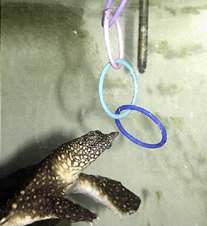THERE HAS BEEN TALK ABOUT THE LACK OF YOUNG VETS prepared to work in general mixed practice and the reasons for this have been postulated. This might seem strange as I recall on graduation that the vast majority of my cohort aspired to enter mixed practice as this was the life most of us felt we wanted. It gave variety; some fresh air; some “down time” to think; recognition and respect from the community you served; and a lifestyle that only the lucky few could dream of. All Creatures Great and Small has a lot to answer for! Certainly some of my year group are still working away in that mind-set and I believe a few of them genuinely enjoy it as much now as they did when in that first flush and enthusiasm of the new graduate. Many of us though have fallen by the wayside and it is difficult to pinpoint a single reason for this. Some of the reasons that spring to mind are: the poor economic state of much of agriculture that involves livestock (and in particular the dairy industry); the continuing long hours when most other people are working less; the relatively poor remuneration for those long hours; the greater expectations of all clients from livestock farmers to pet owners who do not want to accept someone simply “having a go” at something they’re maybe not 100% sure about; those cold, dark call-outs in winter when all one really wants to do is get a good night’s sleep; have I gone on long enough? But yes, to repeat myself, there are still some heroic individuals who are continuing to battle away at it in their sixties (and sometimes beyond) and who seem to thrive on it. When it comes to new graduates though, there are fewer out there who are prepared to make the kind of sacrifices that a commitment to general mixed practice requires. Not because they are afraid of hard work; those in small animal practice often work long hours and under intense pressure from increasingly demanding clients and peer scrutiny.
Having more control
But specialising in small animals – or especially (just as in the medical profession) in a particular discipline of small animal practice – gives more control over one’s working day/week and almost certainly a better sense of “being in control” in terms of the expert knowledge and skills possessed. After all, in general mixed practice when one has to know a little about a lot, it is very easy for an intelligent client to quickly know more than us about a particular disease or condition through a careful search of the internet; something that is much more difficult for a client to pull off when confronted by an orthopaedic or ophthalmic expert, for example. There has been talk for many years about whether genuine mixed practice has a future for some of the reasons outlined above and it is true to say that many “mixed” practices now have separate arms for large, small and equine clients with little if any cross-over of the vets who work in the different disciplines.
Still needed in some places
There are areas of the country where the mixed practitioner is still needed and where the clientele recognises and appreciates this. These are largely rural areas of course – sometimes isolated rural areas – but it also applies in less affluent areas where clients don’t necessarily have the income to purchase the most cutting-edge treatment for their animals and are happy with a more modestly priced and perhaps more “basic” service. There has also been some postulation that one of the reasons for attracting fewer young graduates to mixed practice is the lack of potential partnership prospects with more practices “selling out” to the corporates rather than offering partnerships or successions to the new generation following on behind. There may be some truth in this, but one can hardly blame the owner of a practice for accepting an offer from the highest bidder in order to fund their retirement, and that highest bidder in my experience is invariably the corporate. How they make the sums add up I have no idea but I am a vet, not an accountant or economist, so I will leave that to the “bean counters”. Clearly they have been very successful, so there is no doubting their ability in this respect.
No real answer
What can be done to ensure that mixed practice can continue to thrive? It’s a familiar question with no real answer of any great meaning. There doesn’t appear to be any clear way forward and one suspects that more and more mixed practices will gradually become more specilaised and either disappear in the form that we know them or be assimilated into larger conglomerates that can somehow compete. Those relatively few that remain pretty much as they are today will likely be in the more remote parts of the country – places where population density and distance are such that there is insufficient demand for more specialised services, on a day-to-day basis at least. These practices will need to attract those graduates who, like the many graduates of the past, see being a generalist rather than a specialist as a rewarding and stimulating career path. I don’t think there will ever be a shortage of graduates willing to give it a try; the difficulty will be to persuade them to stick at it for the next 40 years. Taking into account all the pros and cons of the genuine mixed practice, it is almost certain that there are easier ways to make a more profitable living than calving cows at four in the morning yet still needing to appear bright-eyed, bushy-tailed and knowledgeable at that first 9am consult about a sick dog. That there are some who can do it, enjoy it and thrive on it is a testament to their resourcefulness and commitment and something to be lauded indeed.






